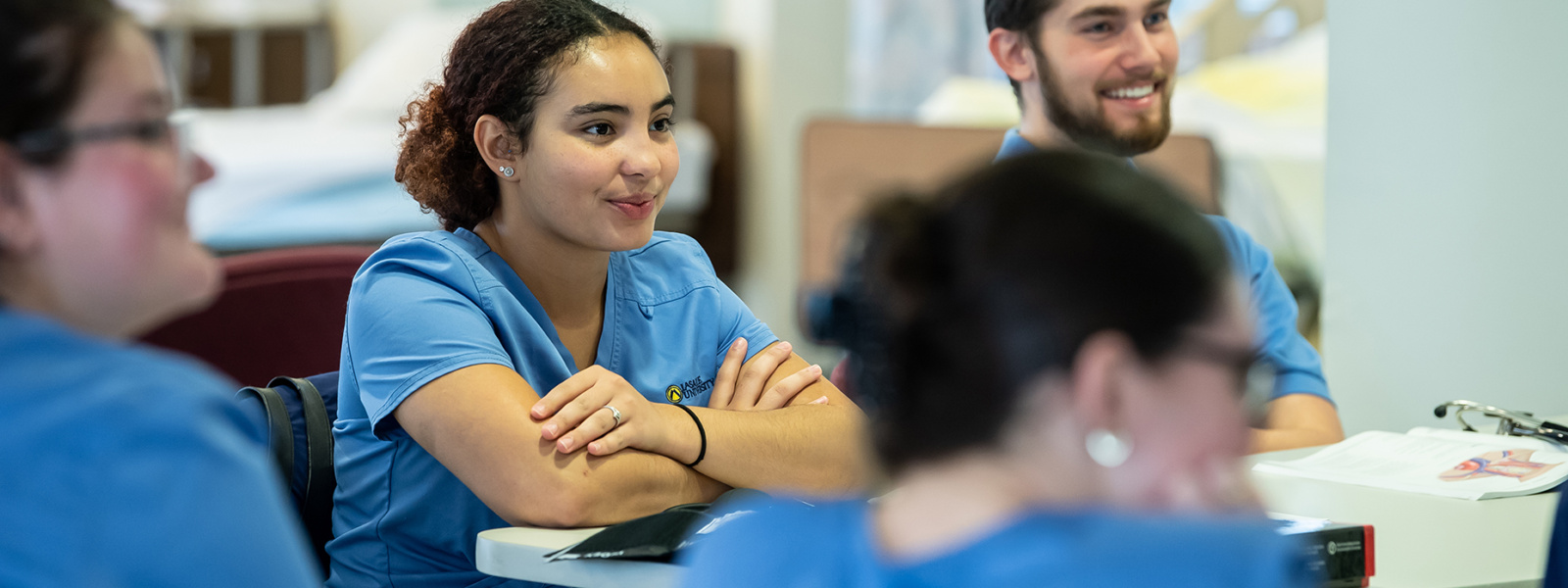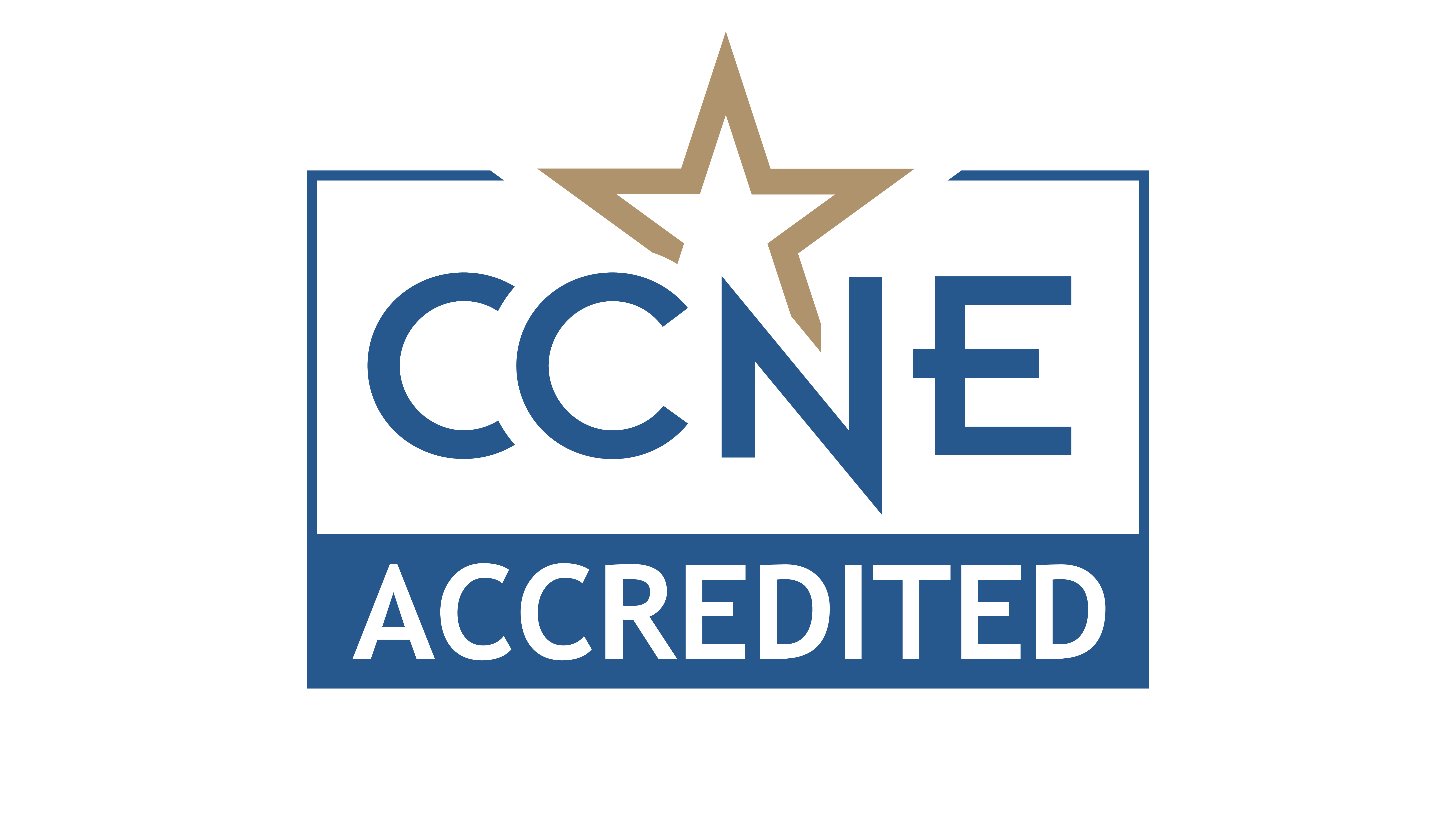La Salle University

What You’ll learn
The Wound, Ostomy, and Continence Nursing Education Program (WOCNEP) prepares nurses to:
- Provide specialized knowledge and skill in caring for acute and rehabilitative patients with disorders of the gastrointestinal, genitourinary, and integumentary systems.
- Provide direct and consultative care for persons with pressure injuries, surgical incisions, wounds, complex fistulas, tubes, drains, and continence care needs.
- Provide highly-skilled acute and rehabilitative care to people with complex wounds, fecal or urinary ostomies, and incontinence.
- Receive initial certification as a WOC nurse.
Why Study Wound, Ostomy, and Continence Nursing at La Salle?
The program is structured to meet the learning needs of today’s adult learner. The curriculum aligns with WOCN® (Wound, Ostomy, and Continence Nurses Society™) standards. The program is delivered in an accelerated, seven-week online format. Students can take one, two or all three specialties.
Highlighted Courses
NUR 720 – Role of the WOC Nurse
This course introduces the student to the role of the Wound, Ostomy and Continence Nurse (W)C). The historical evolution of the WOC Nurse is reviewed. Students compare role responsibilities of the WOC nurse, including clinician/consultant, patient/staff education, and leadership/management. The process of research utilization and the contributions of evidence-based practice to the implementation of the WOC Nurse role responsibilities are examined. The collaborative interprofessional functions of the WOC nurse are explored. Professional issues, such as legal and ethical considerations, accountability, professional standards, budgetary management, data management, reimbursement issue, and national health policy are addressed.
NUR 721 – Wound and Skin Care Specialty Course
Student examine principles of skin and wound care for clients across the lifespan. The pathophysiology of acute and chronic wound and skin disorders is presented to expand student understanding of normal anatomy and physiology of the integumentary system and would healing. Assessment and diagnostic methods and treatment and preventive plans are developed for clients at risk for wound development or threats to wound healing. Students combine principles of wound care to identify actual or potential would and skin problems, safe, evidence-based interventions, and characteristics of competent patient care. Students advance in theoretical knowledge, clinical judgment, differential diagnosis and decision-making skills in caring for clients with skin and wound needs.
NUR 722 – Wound and Skin Care Specialty Practicum (50 hrs.)
This course builds upon the scientific underpinnings of NUR 720 Advanced Anesthetic Management for Special Procedures I. This didactic course is designed to facilitate the translation of science, research data and judgment into safe and effective clinical practice. Students are challenged to apply knowledge, critical thinking skills, and judgment in developing strategies for the management of patients undergoing head and neck procedures, plastic/reconstructive, trauma, burn, organ transplant surgical procedures and off-site anesthesia services. Case presentations and interactive discussions will provide a forum for intellectual exchange in which communication skills are further enhanced.
Meet the Faculty
La Salle’s Nursing program educates professionals prepared as leaders in practice, service, scholarship, and education—contributing to the advancement of the health and well-being of communities.
Career Opportunities
The average national salary for a Certified WOC nurse is $83,805 per year.
Accreditation
La Salle’s BSN, MSN, DNP and APRN post-master’s certificate programs are fully accredited by the Commission on Collegiate Nursing Education (CCNE).
Also, our Post-BSN WOCNEP has received a full 7-year accreditation through December 31, 2028 by the Wound, Ostomy, and Continence Nurses Society ™ (WOCN®).

Wound, Ostomy, and Continence Nurses Society
The Wound, Ostomy, and Continence Nurses Society™ (WOCN®) is the largest and most recognized professional nursing community dedicated to advancing the practice and delivery of expert healthcare to individuals with wound, ostomy, and continence care needs.
Scholarships are available through the WOCN® Foundation Scholarship Program.
The program is mostly online, which was helpful [for me because] it was more convenient and fit better into my schedule.
